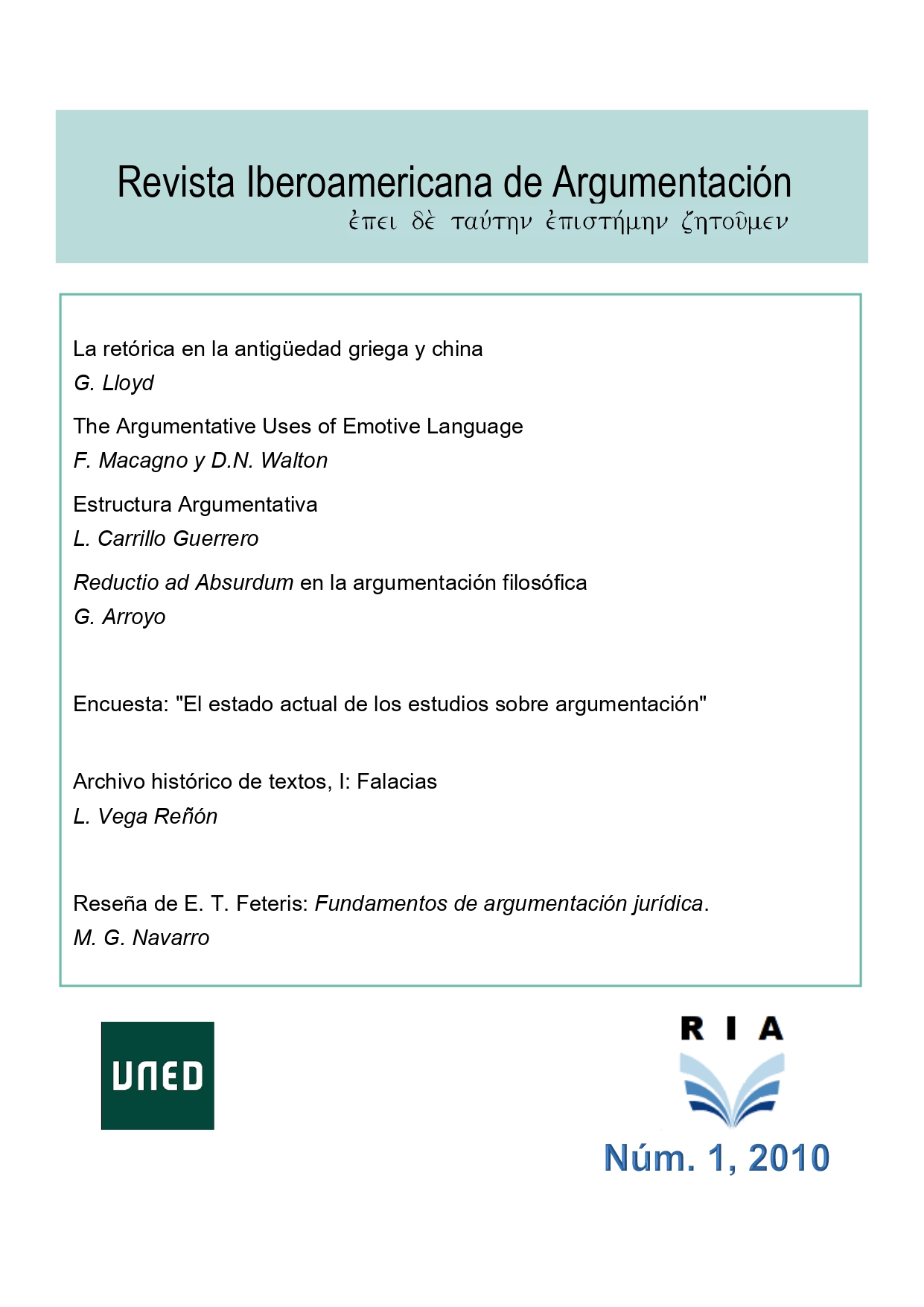Keywords:
argumentación filosófica, razonamiento hipotético, Reductio ad absurdumCopyright (c) 2017 Revista Iberoamericana de Argumentación

This work is licensed under a Creative Commons Attribution-NonCommercial-NoDerivatives 4.0 International License.
Abstract
The argumentative resource known as Reductio ad Absurdum (RA) is one of the characteristics means philosophy serves from to argumentative purposes. It consists in refusing a thesis by deducing an absurd implication from it. After a clarification of the logical basis of the RA and of the concept of "absurd implication," the author states there are two different types of RA, the "a priori" and the “a posteriori" types. The former consists in deriving a proposition, which contradicts a self-evident assertion. The latter consists in inferring a proposition, which contradicts an obvious empirical truth. Within the first category, most of the philosophical and mathematical RA arguments fall. In the last section of the paper the author explains why the arguments by Reductio ad Absurdum in philosophy lack the proving nature of its mathematical peers.
Keywords: Philosophical argumentation, hypothetical reasoning, Reductio ad Absurdum
